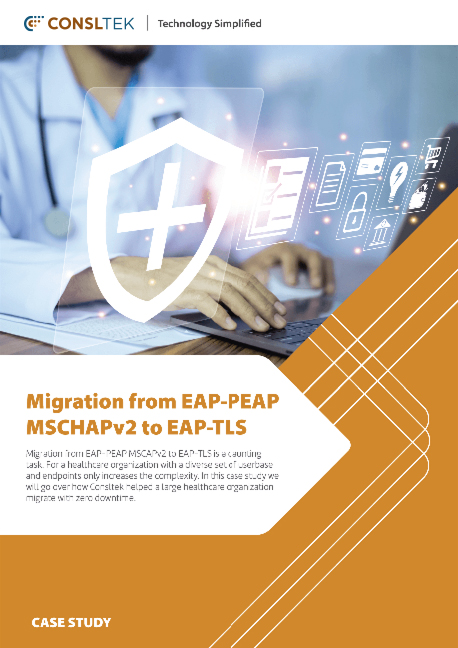- Introduction
- Traditional Appliance-Based Vendors
- Cloud-Native Security Vendors
- Ground-Up SASE Vendors
- Hybrid SASE Vendors
- What’s The SASE Vendor Verdict For Mid-Sized Businesses?
- Key Takeaways: Your Ultimate Guide to Navigating the SASE Vendor Landscape
- Looking for SASE implementation services?
Introduction
Welcome to the insider’s guide on Secure Access Service Edge (SASE) vendors.
As businesses pivot to the cloud and remote work becomes the norm, SASE is no longer a luxury—it’s a necessity.
This article is your roadmap to understanding the four types of SASE vendors that are revolutionizing network security and why mid-sized businesses should pay attention.
We’ll deep dive into the features, scalability, and integration capabilities that these vendors offer, helping you make an informed decision.
Traditional Appliance-Based Vendors
Companies: Cisco, Fortinet, PaloAlto Network, and Forcepoint

Summary of Traditional Appliance Based Vendor Pros & Cons
| The Pros | The Cons |
|
|
In-depth Analysis Of Traditional Appliance Based SASE Vendors
Traditional appliance-based vendors are the stalwarts of the industry, offering robust, feature-rich solutions.
However, the shift to the cloud is causing disruption in the network security appliance market.
To remain relevant, these vendors are transitioning their solutions to virtualized software deployed in the cloud.
This move often requires sacrificing hardware acceleration and adapting to complex security policies.
Vendor Specific Analysis of Traditional Appliance Based Vendors
| Cisco Pros | Cisco Cons |
|
|
| Fortinet Pros | Fortinet Cons |
| Robust Security: Offers Security Fabric with robust Layer 24-7 security. User-Friendly: Known for its user-friendliness and scalability. Hardware Acceleration: Leads with hardware-accelerated SD-WAN. | Cloud Strategy: Lacks a comprehensive cloud strategy. Global Backbone: Missing global backbone for cloud-native components. Licensing: Yearly licensing is considered slightly high |
| PaloAlto Network Pros | PaloAlto Network Cons |
|
|
| Forcepoint Pros | Forcepoint Cons |
|
|
General Insights
Traditional vendors are at a disadvantage due to their limitations in offering truly cloud-native capabilities.
Cloud-Native Security Vendors
Companies: Zscaler, Netskope

Summary of Cloud Native Security Vendor Pros & Cons
| Pros | Cons |
|
|
Vendor Specific Pros & Cons
| Netskope Pros | Netskope Cons |
|
|
| ZScaler Pros | ZScaler Cons |
|
|
In-depth Analysis
In the rapidly evolving world of cybersecurity, cloud-native security vendors like Zscaler and Netskope are making waves.
They offer a range of advantages, from agility to cost-effectiveness, that make them particularly appealing for businesses already invested in cloud services.
However, they’re not a one-size-fits-all solution.
- The agility they offer is unparalleled, especially for industries that are sensitive to market changes. But this agility comes at a cost: they may lack some of the advanced features that traditional vendors offer.
- Moreover, the risk of vendor lock-in is a real concern, particularly for businesses that may need to switch their tech stacks or adopt multi-cloud strategies in the future.
- The architecture of these solutions, often involving microservices and containers, can introduce complexities that require specialized skills to manage effectively. Additionally, the large volume of observability data they generate can be both a boon and a bane.
So, what’s the bottom line?
- If you’re a business that values agility, cost-effectiveness, and is heavily invested in cloud services, these vendors could be a perfect fit.
- However, if you require advanced features and are concerned about vendor lock-in or complexity, you might want to look elsewhere.
Would you trade off advanced features for agility and cost-effectiveness?
Ground-Up SASE Vendors
A Summary of Pros & Cons of Cato SASE, Perimeter 81
| Pros | Cons |
|
|
Vendor Specific Pros & Cons
| Cato SASE Pros | Cato SASE Cons |
|
|
| Pros of Perimeter 81 | Cons of Perimeter 81 |
|
|
Comparative Insights
- Pricing: Both offer flexible pricing, but Perimeter 81 lacks transparency
- ROI: Both have a positive ROI but focus on different aspects: Cato on savings and Perimeter 81 on cost minimization
So, which solution is the better fit for your organization? The answer hinges on your specific needs, whether it’s quick deployment, robust features, or customer service.
The Maverick Approach
Ground-up SASE vendors like Cato SASE Cloud and Perimeter 81 have disrupted the SASE landscape by building their platforms from scratch.
This purpose-built approach ensures that their solutions are inherently streamlined and easier to manage. For mid-sized businesses, this is a game-changer.
Why? Because it allows them to reallocate resources more efficiently, without the need for a large IT team.
The Flip Side
However, every coin has two sides.
- These vendors may lack the feature maturity that comes with years of development and customer feedback
- They’re still in the process of refining their offerings, which could mean fewer features compared to traditional vendors
- Additionally, their support ecosystems are not as expansive, which could be a concern when you run into issues that require specialized expertise
Future Outlook
- The SASE market is projected to grow to $6 billion by 2028.
- As these vendors mature, they are likely to fill the gaps in their feature sets and support ecosystems.
- Therefore, keeping an eye on their development could be beneficial for future planning.
Hybrid SASE Vendors
Generic Pros and Cons of Cloudflare, Versa

Cloudflare’s SASE offering, Cloudflare One, doesn’t neatly fit into the “Ground-Up SASE Vendors” category like Cato SASE or Perimeter 81. The same is the case for Versa.
Instead, both of these systems occupy a unique position that combines elements of traditional vendors and cloud-native solutions.
Both Versa and Cloudflare, as hybrid SASE vendors, offer a range of advantages and disadvantages.
| The Pros | The Cons |
|
|
Specific Vendor Pros and Cons
| Versa Pros | Versa Cons |
|
|
| Cloudflare Pros | Cloudflare Cons |
|
|
In-Depth Insights
- In-depth insights for both vendors can be gathered from user reviews, comparing features, pricing, service and support, ease of deployment, and ROI.
- While Versa offers scalability and powerful configuration, Cloudflare is praised for its security features and ease of implementation.
Recommended Company Types
Both Versa and Cloudflare’s hybrid SASE solutions are suitable for a range of companies, including:
- Medium to Large Enterprises: Due to their scalability and flexibility, both vendors cater to medium to large enterprises that require robust security and network management.
- Companies Focusing on Security: Organizations that prioritize security will benefit from the strong protection features offered by both vendors.
- Those Looking for Simplified Network Management: Companies seeking to simplify network management and integrate networking and security services will find Versa and Cloudflare appealing options.
In summary, Versa and Cloudflare each have their strengths and weaknesses, making them suitable for different company profiles.
Evaluating specific needs and priorities will help businesses choose the best-fit vendor.
What’s The SASE Vendor Verdict For Small to Mid-Sized Healthcare Businesses?
For mid-sized businesses, the SASE vendor choice should be a calculated decision based on a few key factors:
- Single-Vendor Solution: Opt for vendors that offer an integrated suite of networking and security services. This reduces complexity and streamlines management.
- Cloud-Native Architecture: Ensure the platform is cloud-native for flexibility and low latency. Cato SASE is highly recommended for its cloud-native architecture and global reach.
- Zero Trust Network Access (ZTNA): This is a non-negotiable feature. It provides enhanced security by verifying every user and device trying to access the network.
- Scalability: Given that mid-sized businesses may grow, scalability is crucial. Single-vendor SASE solutions are particularly effective for small and mid-market enterprises.
- Budget: Mid-sized businesses should also consider cost-effective solutions. Vendors like Perimeter 81 offer advanced threat protection and are budget-friendly.
- Future-Proofing: With the SASE market evolving rapidly, opt for vendors that are innovative and can adapt to future security needs
In summary, for a mid-sized business, a vendor like Cato SASE Cloud or Perimeter 81 could be an excellent choice given their cloud-native architecture, ZTNA capabilities, and budget-friendliness.
Always keep an eye on the future; you’re not just buying for today but investing in your security infrastructure for the years to come.
Key Takeaways: Your Ultimate Guide to Navigating the SASE Vendor Landscape
The Landscape is Diverse, Choose Wisely
The SASE vendor landscape is a mosaic of options, each with its unique set of advantages and drawbacks.
Traditional appliance-based vendors like Cisco and Fortinet offer feature-rich solutions but may lack cloud-native agility.
Cloud-native vendors like Zscaler and Netskope bring flexibility and cost-effectiveness to the table but may compromise on some advanced features.
Align with Your Business Needs
Mid-sized businesses should align their specific requirements with what vendors offer. If agility and cost-effectiveness are your priorities, cloud-native vendors could be your go-to.
However, if you’re looking for a comprehensive feature set, traditional or hybrid vendors might be more up your alley.
The Rise of Ground-Up and Hybrid Vendors
Ground-up vendors like Cato SASE Cloud and Perimeter 81 are disrupting the market with their purpose-built solutions, ideal for mid-sized businesses.
Hybrid vendors like Cloudflare and Versa offer a balanced approach, combining the best of both worlds.
Zero Trust is Non-Negotiable
Zero Trust Network Access (ZTNA) is a must-have feature, irrespective of the vendor you choose. It adds an extra layer of security by verifying every user and device trying to access the network.
Future-Proof Your Investment
The SASE market is projected to grow to $6 billion by 2028. Opt for vendors that are innovative and can adapt to future security needs.
You’re not just buying for today; you’re investing in your security infrastructure for the years to come.
Your roadmap to SASE vendors is now complete. Navigate wisely.
Looking for SASE implementation services?
At Consltek Inc., we’ve got you covered with a comprehensive range of offerings. What’s more with the partnership with Cato SASE Cloud and implementation of this at Cleveland University, at Kansas City, we have the chops to offer you Managed SASE Services for Healthcare.

- Specialized Security Audit: We conduct specialized audits to pinpoint security gaps in your system.
- Tailored Solutions: Our solutions are customized to fit your needs precisely, without any vendor fluff.
- Vendor Selection: We offer unbiased vendor selection based on your unique requirements.
- Risk Reduction: With our technical expertise, we streamline integration and minimize risks.
- Staff Training: We provide comprehensive staff training on new systems.
- Ongoing Support: Count on us for continuous SASE implementation support to ensure your security stays robust and up-to-date.
Trusting Consltek Inc. for your SASE implementation needs means you’ll have a reliable partner to cover all aspects of your security and efficiency requirements.


Your article helped me a lot, is there any more related content? Thanks!